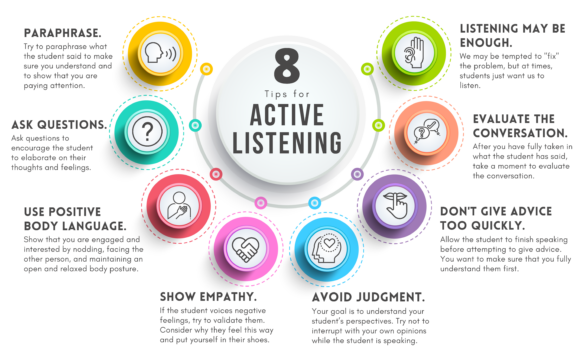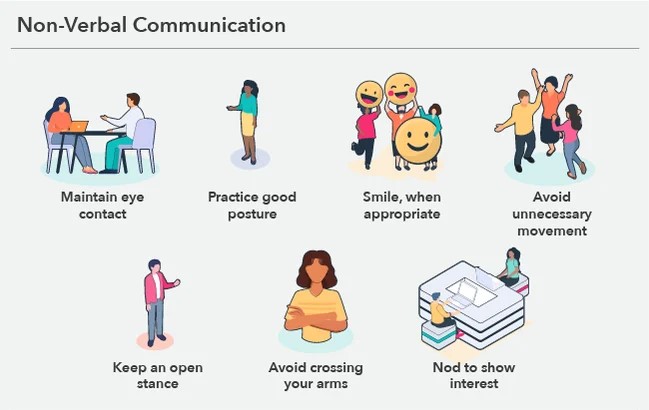
Where On the one side College life is exciting, on the other side it is a bit challenging as well. In between the bustle of classes, social gatherings, and newly acquired freedom, we tend to forget about one of the most important things i.e. building a healthy relationship. This relationship mainly revolves around the two fundamental components: communication and consent. Therefore, in this blog, you will understand the importance of these components and also provide you with some practical tips for developing respectful and meaningful connections on campus.
The Importance of Healthy Relationships on Campus
To make your college experience a happy one, healthy relationship which can be casual, romantic or academic, are one of the important part. Further, it helps you by providing you with emotional support, enhance personal growth, and contribute to a positive campus environment. Whereas, an unhealthy relationship can result in stress, anxiety, and several other negative outcomes. This is why it is important to prioritize a healthy interaction for overall well-being and success during college years.
Communication: The Cornerstone of Healthy Relationships
Effective communication is the pillar of any healthy relationship. This not only includes speaking but also includes listening, understanding, and responding to it accordingly. Thus, here are some of the vital components of good communication:
1. Active Listening
Active listening is more than just hearing what is being said. This involves giving complete attention, acknowledging the speaker’s message, and responding effectively. This type of practice helps you encourage mutual respect and understanding, which are essential for building trust.
Tips for Active Listening:
- Maintain eye contact and try to avoid any kind of distraction.
- Use verbal and non-verbal indicators to showcase your engagement.
- To ensure your understanding, try to comprehend that you have heard.
- To promote more in-depth discussion, offer open-ended questions.

2. Clear and Honest Expression
It is very essential to express your thoughts and feelings clearly and honestly. This is being honest about your wants and feelings in a courteous manner rather than being blunt or hurtful.
Tips for Clear Expression:
- Express your feelings using “I” words instead of placing blame on other people.
- Clearly state what you require or anticipate.
- Stay clear of assumptions and quickly resolve any miscommunications.

3. Non-Verbal Communication
A non-verbal cue is an important part of communication. The cue basically includes body language, facial expressions, and tone of voice. They have the power to support or contradict what is verbally being said.
Tips for Effective Non-Verbal Communication:
- Try to understand your own body language and what it wants to say to you.
- Pay attention to the non-verbal signals given by others and then respond accordingly.
- Always make sure that the non-verbal cues match your words so as to avoid conflicting messages.

Consent: A Crucial Component of Respectful Relationships
Consent is not only about respecting boundaries but also about making sure that all the parties are comfortable and willing to participate in any kind of activity. It can be either having a conversation, physical interaction or a mutual decision. It is a kind of continuous process of checking in and also making sure that everyone who is involved in it feels safe and respected.
1. Understanding Consent
Consent must be:
- Freely Given: Without any kind of pressure, manipulation and under any drug or alcohol-related impact.
- Reversible: Despite having past connections, a person can change their mind at any point in time.
- Informed: To make an effective decision, it is important that all the parties have complete information.
- Enthusiastic: Rather than giving consent with regret and resignation, it is essential to give it with eagerness and excitement.
- Specific: Consent is person-specific which means that the activity with is implied by one person cannot be implemented by another.
2. Practicing Consent
Consent involves maintaining regular communication and attentiveness to the needs and boundaries of your partner.
Tips for Practicing Consent:
- Before starting any new activity, it is essential to always ask for permission.
- Try to pay attention to the verbal and non-verbal cues that will help you understand the comfort or discomfort.
- Always respect and accept hesitation or rejection without any question or pressure.
- When in a long-term relationship it is important to ensure and check continuous comfort and willingness on a regular basis.
Integrating Communication and Consent into Campus Life
With both group’s effort as well as individual commitment you will be able to promote a culture of communication and consent on campus. Here are some of the tips to integrate these principles into the day to day life:
1. Education and Awareness
The culture of the campus can be significantly impacted by the educational programs and workshops on communication and consent. Furthermore, to understand and practice these principles, many universities offer their student resources and training to efficiently help them.
2. Peer Support and Advocacy
In shaping a better campus culture, the peers play a very important role. Furthermore, positive knock-on effects can result from supporting friends and promoting polite interpersonal interactions.
3. Utilizing Campus Resources
To support the students in building a healthy relationship, many universities have resources specially dedicated for it. These might consist of support groups, hotlines, and counselling programs.
Overcoming Challenges in Campus Relationships
It’s not always easy to build a healthy relationship, especially when you are in a new and dynamic environment such as college. However, it is possible to overcome common challenges with proper dedication and the right strategies.
1. Dealing with Miscommunication
Misunderstanding and conflicts are the main reasons for miscommunication. It is essential to address these problems quickly and efficiently.
2. Navigating Cultural Differences
Because of the diversity of college campuses, communication styles and perceptions of consent might be influenced by cultural differences.
Conclusion
Building a healthy connection on campus that is based on consent and effective communication is essential to having a happy and encouraging college experience. Students may build relationships that improve their lives and contribute to a respectful campus culture by placing a high value on mutual respect, clear communication, and active listening. Ensuring safe and consensual encounters is further ensured by practising consent and pushing for education and awareness. Adopting these values will help the students grow personally while navigating the challenges of college life and will also help you promote a more inclusive and healthier community.
Through the implementation of these practices in everyday interactions, students may build a strong basis for healthy relationships that will serve them well both during their time on campus and beyond.

